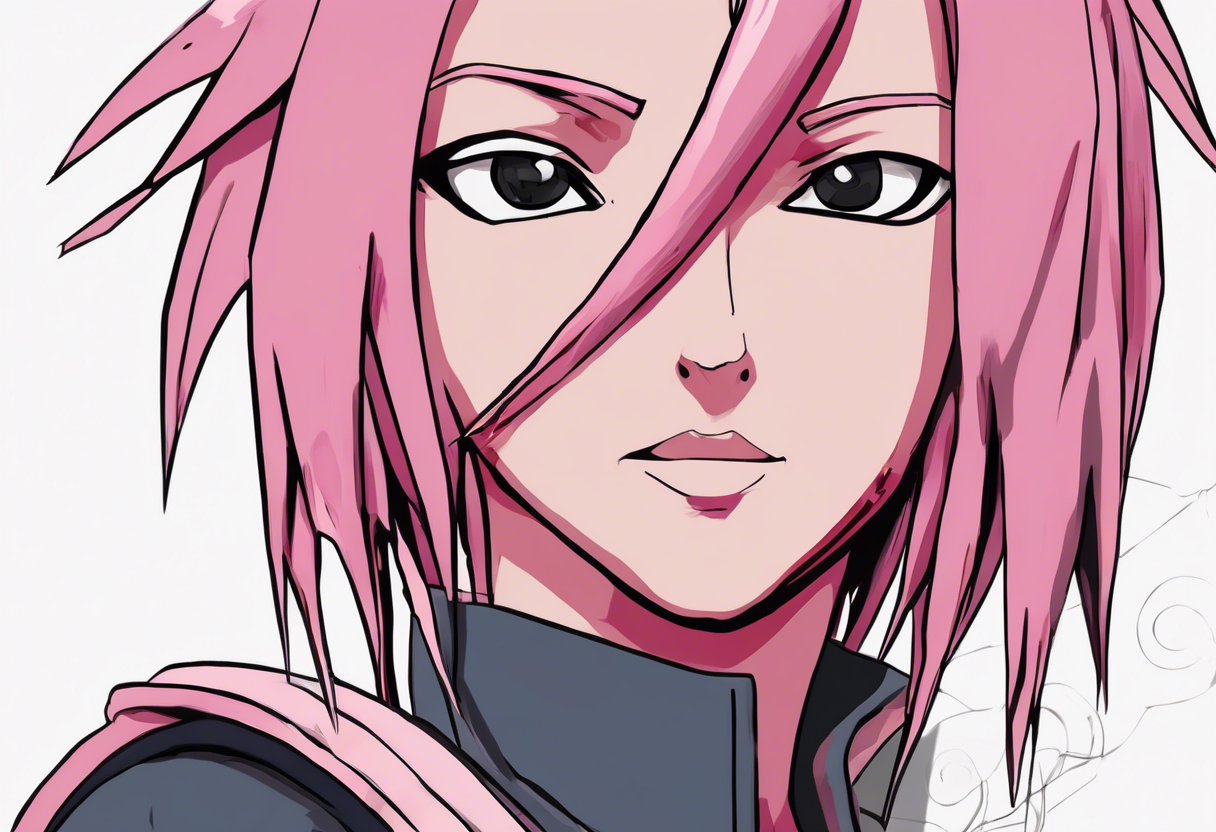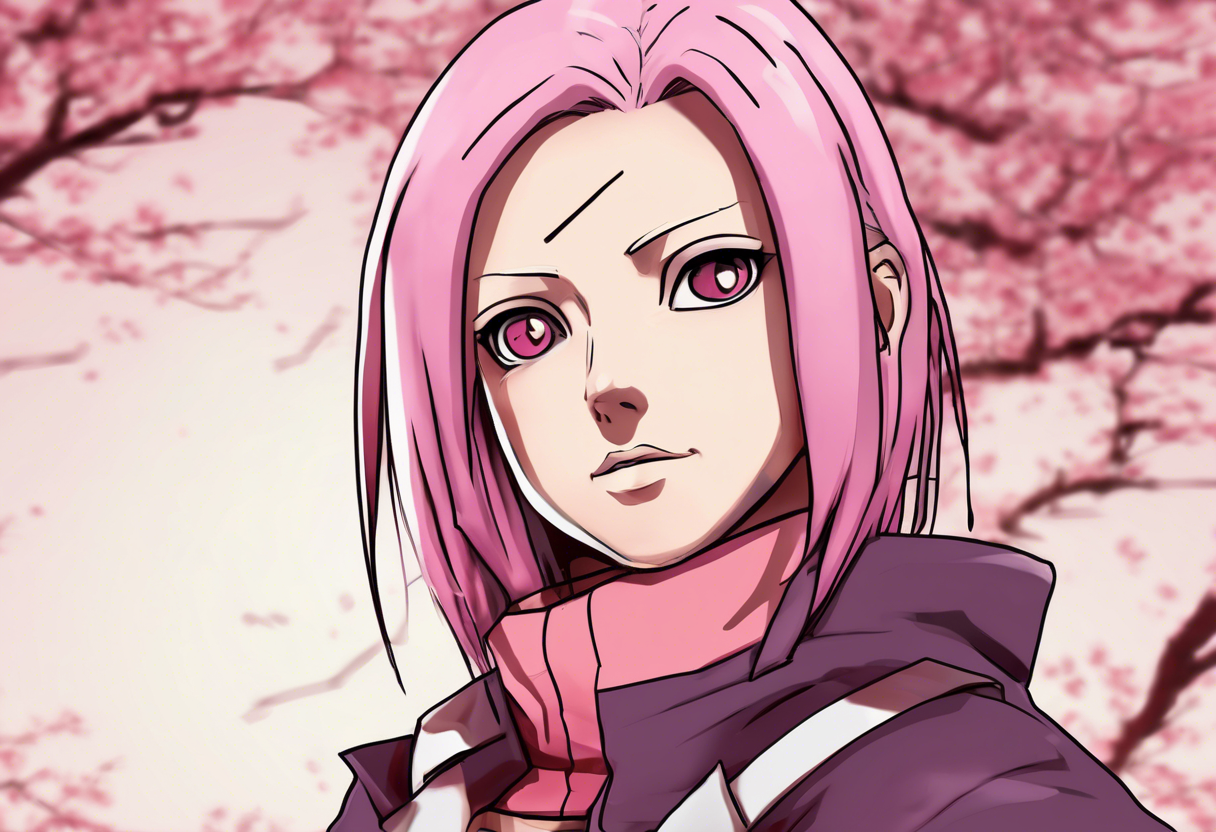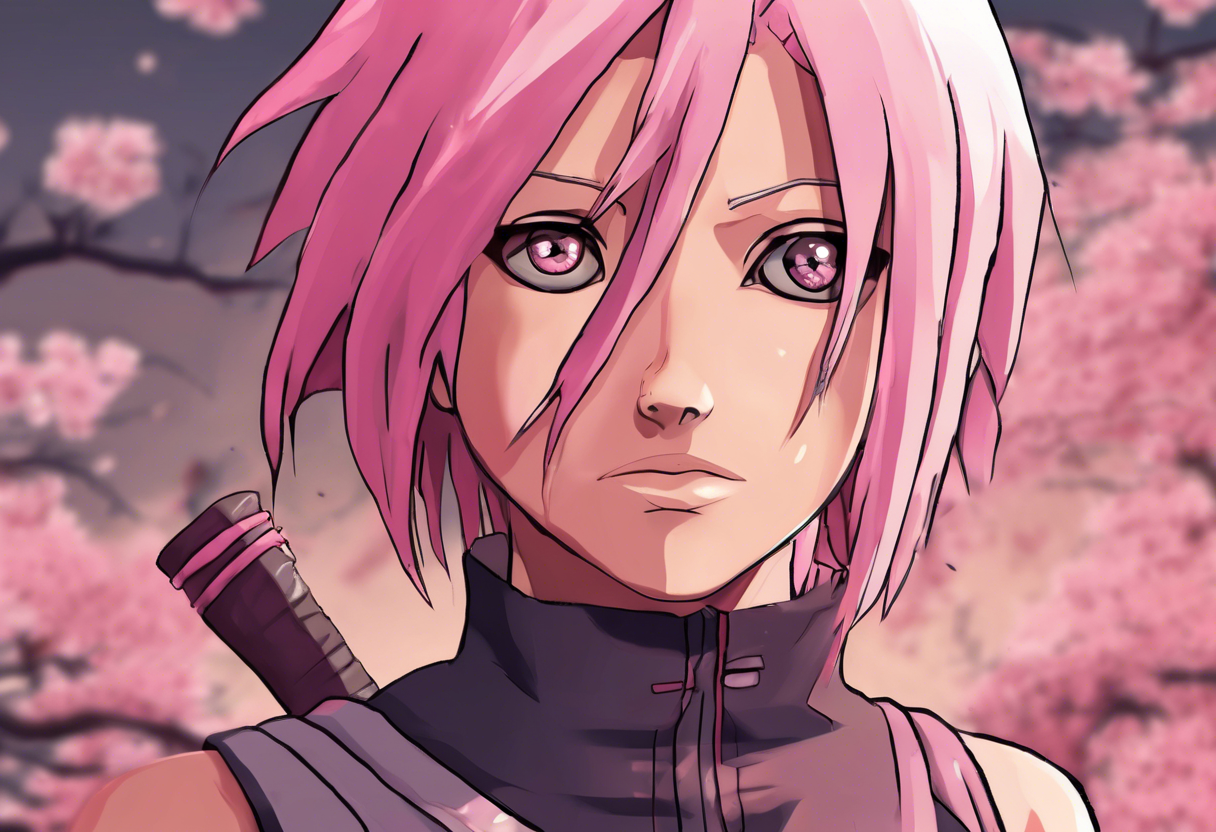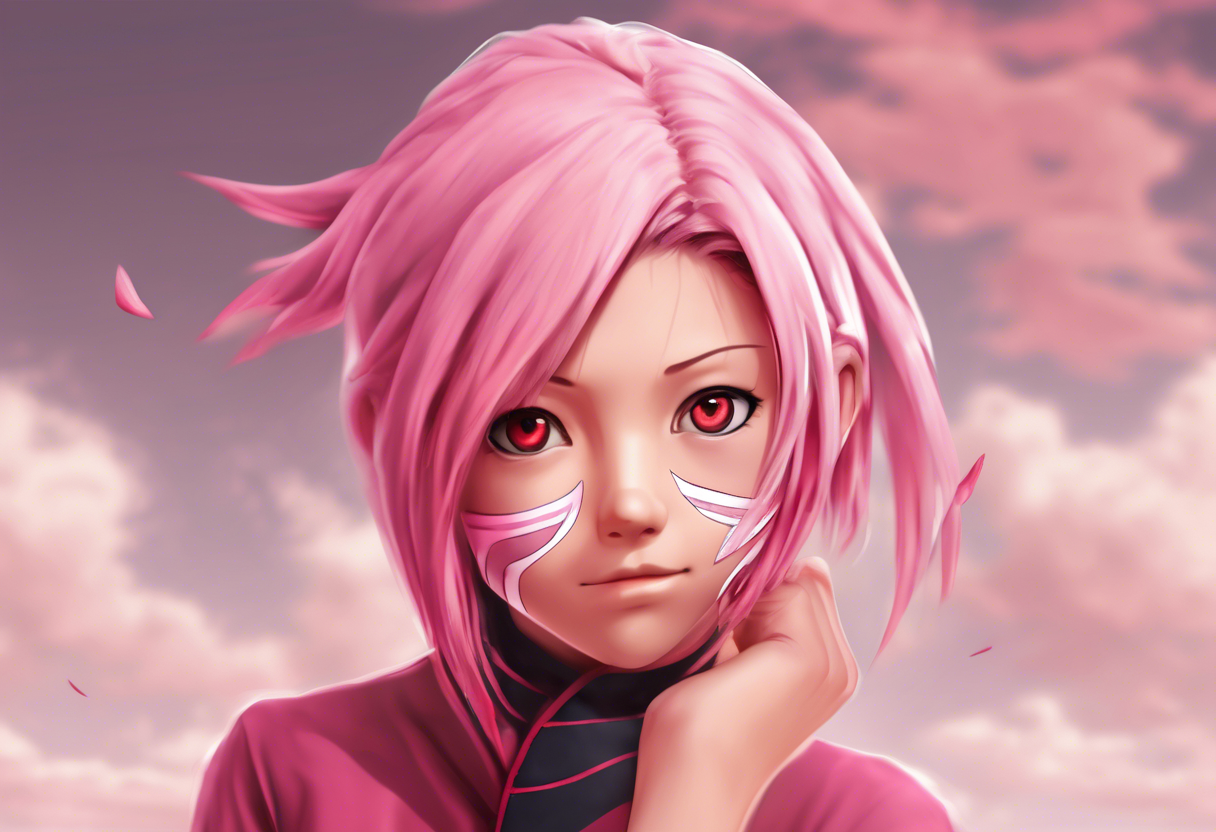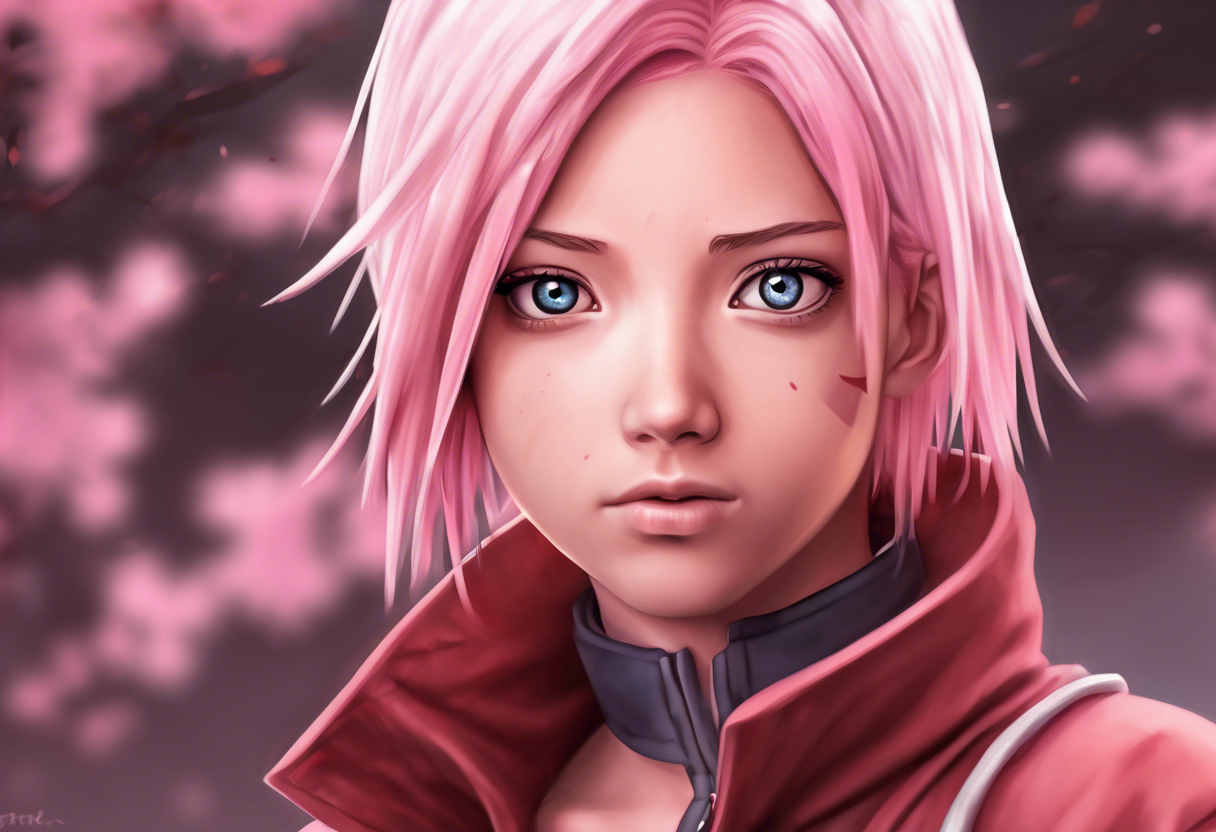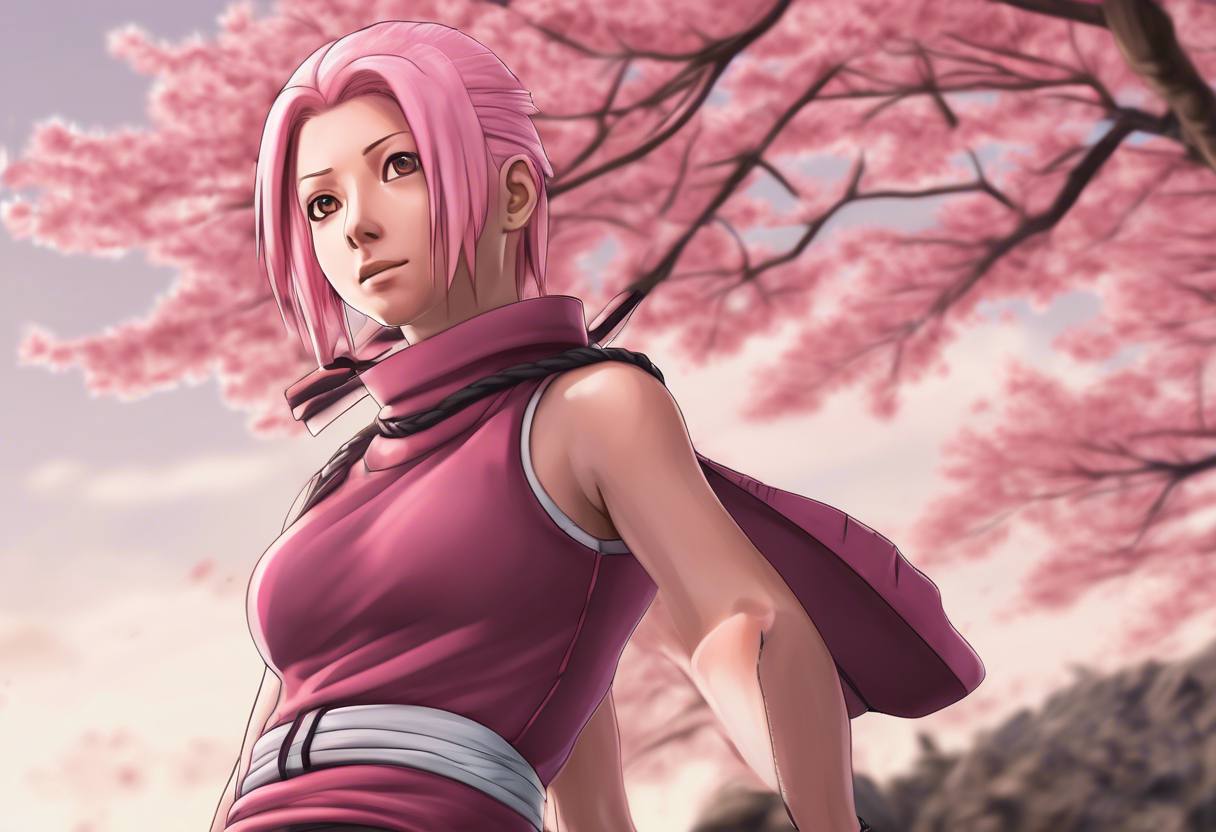Contents
Sakura Haruno: A Comprehensive Analysis of the Naruto Character
Introduction
Sakura Haruno, created by Masashi Kishimoto, is a pivotal character in the popular manga and anime series Naruto. She is a kunoichi from the Hidden Leaf Village (Konohagakure) and a member of Team 7, alongside Naruto Uzumaki, Sasuke Uchiha, and their sensei Kakashi Hatake. Unlike her teammates, Sakura does not have a tragic backstory, but she was bullied throughout her youth, particularly for her large forehead [1][5].
Sakura’s character is significant not only within the Naruto series but also in the broader context of anime and manga. Her journey from an insecure and somewhat shallow girl to a strong, compassionate, and skilled medical ninja is a central theme of her character development. This transformation makes her a relatable and compelling character for audiences.
Role in the Story
Sakura’s storyline is deeply intertwined with the main narrative of Naruto. Initially, she is portrayed as a girl with a crush on Sasuke Uchiha, often dismissing Naruto Uzumaki’s affections and treating him poorly. However, as the series progresses, Sakura undergoes significant growth. She becomes a medical ninja under the tutelage of the Fifth Hokage, Tsunade, and develops remarkable physical strength and chakra control, particularly through the Byakugō Seal [1][2].
One of the key events in Sakura’s journey is her involvement in the fight against the Akatsuki. She plays a crucial role in defeating Sasori, an Akatsuki member, with the help of Chiyo, showcasing her adaptability and strategic thinking [1][4]. Throughout the series, Sakura’s relationships with Naruto and Sasuke evolve dramatically. She transitions from being infatuated with Sasuke to becoming protective and supportive of both Sasuke and Naruto, especially as she understands the hardships Naruto faces due to the Nine-Tailed Demon Fox sealed within him [1][2].
In the later stages of the series, Sakura participates in the Fourth Ninja War and battles alongside Naruto and Sasuke against the Ten-Tails creature. After the war, she marries Sasuke and becomes the mother of their daughter, Sarada Uchiha, as depicted in the epilogue and the spin-off series Boruto: Naruto Next Generations [1].
Character Analysis
Sakura’s personality and motivations undergo substantial development throughout the series. Initially, she appears calm and collected but internally struggles with her emotions, which she expresses through her "Inner Sakura" – a manifestation of her inner thoughts and feelings [2][5].
One of Sakura’s defining traits is her resilience and unwavering dedication to those she cares about. Despite Sasuke’s mistreatment and disregard for her feelings, Sakura never gives up on him. She also becomes increasingly protective of Naruto, risking her life to ensure his safety on multiple occasions [2].
Sakura’s treatment of others, particularly Naruto, evolves significantly. She begins to recognize and rectify her unfair treatment of him, developing a softer and more supportive attitude towards him and other characters like Rock Lee [2][5].
Her growth into a self-reliant and compassionate individual is highlighted by her role as a mother. Despite Sasuke’s frequent absences, Sakura maintains a positive outlook and raises their daughter, Sarada, with cheerful enthusiasm and reassurance [2].
Themes and Symbolism
Sakura embodies several key themes of the Naruto series. One of the most prominent is the theme of personal growth and development. Her transformation from an insecure girl to a confident and skilled kunoichi reflects the series’ emphasis on self-improvement and overcoming personal limitations [1][2].
Another significant theme associated with Sakura is the importance of relationships and friendships. Her bonds with Naruto, Sasuke, and other characters illustrate the series’ focus on the value of camaraderie and the impact that supportive relationships can have on personal growth and well-being [1][2].
Sakura also symbolizes the theme of guilt and redemption. Her feelings of guilt over Naruto’s sacrifices for her and Sasuke drive her to become a better support for Naruto, showcasing the series’ message about the power of guilt to motivate positive change [2].
Cultural Impact
Sakura Haruno has had a notable impact on popular culture. Despite being one of the most polarizing characters in the series, her influence extends beyond the anime itself. She has been a subject of both praise and criticism, with some fans appreciating her development and others feeling she was underutilized or inconsistent [4][5].
In adaptations and spin-offs, Sakura continues to play a significant role. Her character in Boruto: Naruto Next Generations as a mother and a medical ninja further solidifies her importance in the Naruto universe. Her influence can also be seen in fan art, cosplay, and merchandise, where she remains a popular character among fans [1][3].
Critical Reception
Sakura’s reception among critics and audiences has been mixed. Some praise her development from an insecure girl to a strong and compassionate kunoichi, highlighting her significant contributions to key battles and her growth as a character [1][2].
However, others criticize her character for being underdeveloped or inconsistent, particularly in comparison to other characters in the series. The focus on Naruto and Sasuke’s storylines has led some to feel that Sakura’s potential was not fully realized [4][5].
Despite these criticisms, Sakura remains a widely recognized and influential character. Her iconic moments, such as her fight against Sasori and her role in the Fourth Ninja War, are memorable and impactful, contributing to the series’ overall narrative and emotional resonance [1][4].
Legacy
Sakura Haruno’s legacy in the Naruto series and beyond is significant. Her character arc serves as a powerful example of personal growth and the importance of relationships. Her influence on other anime and manga characters is evident, particularly in the portrayal of strong, complex female characters.
In contemporary discussions, Sakura’s character continues to be a topic of interest. Her development and the themes she embodies remain relevant, reflecting broader societal issues such as self-esteem, friendship, and personal responsibility.
Sakura’s enduring appeal lies in her relatability and the depth of her character. Despite initial criticisms, her growth and contributions to the series have solidified her place as one of the most memorable and impactful characters in the Naruto universe.
References
- https://en.wikipedia.org/wiki/Sakura_Haruno
- https://www.cbr.com/naruto-sakura-best-traits-personality-abilities/
- https://entertainmentstore.in/blogs/news/why-is-the-anime-naruto-so-emotional-and-relatable
- https://www.imdb.com/name/nm11462174/news/
- https://blacknerdproblems.com/why-sakura-haruno-is-hated-underrated-unappreciated/

